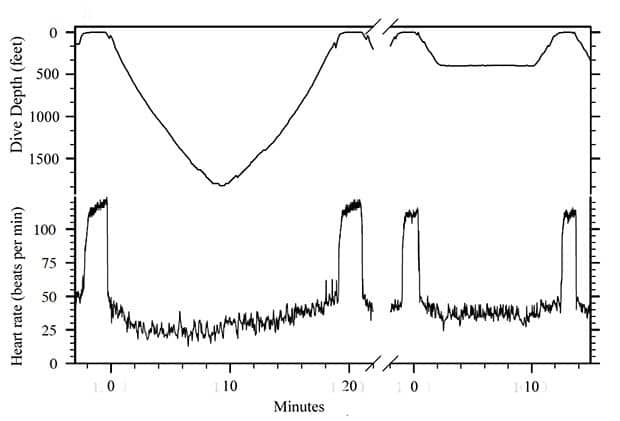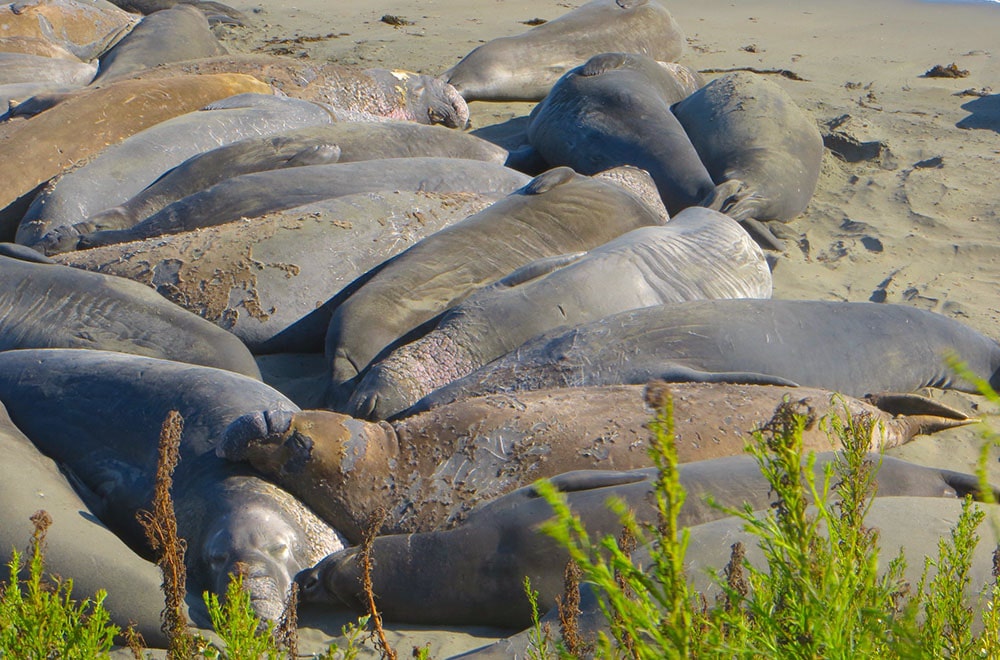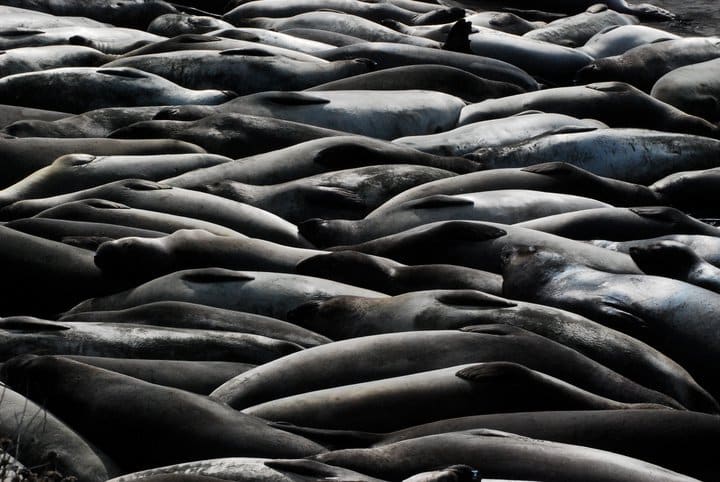The Dive Response
Like all seals, elephant seals undergo a set of physical changes when they dive – called the dive response. The dive response includes a significant drop in heart rate, constriction of blood vessels in the periphery, and cessation of breathing (apnea). These biological adaptations protect the elephant seal from excessive heat loss and maximize their survival time without breathing. The figure (Andrews, 1997) shows the change in heart rate at sea for both deep and shallow dives.
Interestingly, the seals also slow down their breathing on the beach, just as they do when they dive. There is a similar, if less pronounced, change in heart-rate. Apnea regularly occurs on land for periods of 8-10 minutes in adult seals. (This is a shorter period of time than during the dive at sea.) Even pups and weanlings use apnea as a means to conserve energy. Visitors often notice that seals are not breathing and worry that they are dead.





